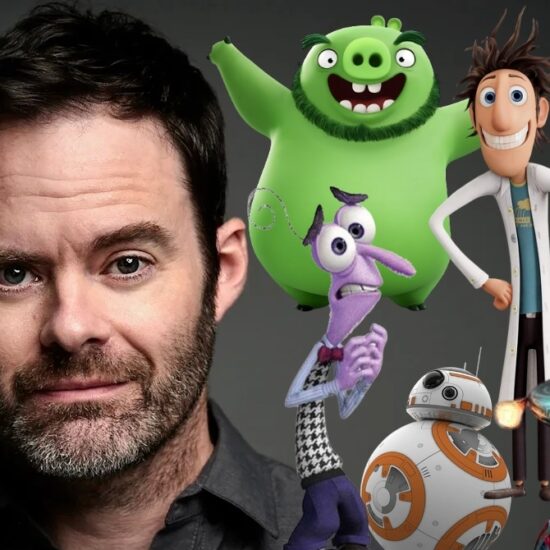
The Toronto Film Festival is at a critical moment after three difficult years following the COVID-19 pandemic, but “the festival will take place,” says Cameron Bailey, CEO of TIFF.
TIFF has typically been a star-studded affair and staple of awards season. However, what the red carpets at the gala premieres and tribute ceremonies that have gone to significant A-listers like Kate Winslet will ultimately look like, remains unknown.
The longtime festival director doubled down on moving forward with this year’s festival, whether the big stars are in attendance or not. This comes amid ongoing WGA and SAG-AFTRA strikes that have halted the Hollywood industry, putting the remaining months of movies and TV shows into unknown territory.
While Bailey is optimistic about TIFF’s plans and its future, he acknowledges the critical moment the festival finds itself after being heavily impacted by COVID and still trying to recapture its mojo.
The contentious Hollywood labor strikes haven’t just affected TIFF, as the entire entertainment industry is feeling the impact. The Primetime Emmys, scheduled for Sunday, Sept. 18, will likely be postponed. The Venice Film Festival lost its festival opener “Challengers” with Zendaya after MGM delayed its release to 2024. And there are reports of more movies exiting the season, such as Warner Bros “Dune Part Two” and “The Color Purple.”
So far, TIFF has announced the World Premieres of Taika Waititi’s “Next Goal Wins” with Michael Fassbender and Atom Egoyan’s “Seven Veils” with Amanda Seyfried.
As the industry juggles its disputes, Bailey spoke with Variety about navigating this tumultuous time and what the festival needs to survive.
The 48th edition of TIFF is set to run from Sept. 7-17.
Are you having conversations with studios about pulling their movies from the festival because talent won’t be able to participate due to the strike?
Cameron Bailey: Now has been a good time for us to check in with the companies bringing us these films and the filmmakers themselves regularly because things are evolving. We’re all trying to understand the situation and what kind of picture we can expect in September. That changes almost day to day. We’re checking in with everybody, confirming where they are – people are making new plans in some cases, or they’re confirming plans or need to check with other people before they can confirm plans. So, we’re in the middle of that. The good news is we are still planning to announce many galas and special presentations on Monday. That we know.
You were initially supposed to unveil the lineup on July 19, but you moved it to July 24. Was that due to ongoing conversations you were having with studios about whether their movies would be making the trip over to Canada?
It was due to wanting to get out of this week’s coverage, which was so much about the strike and how it impacted productions, negotiations, and everything else. We didn’t want to make announcements of festivals in the middle of that. It didn’t seem like the right moment for that. So we stepped back and decided to go on Monday instead. We have a lot of great news we want to inform people about, but we thought to give this week what it requires – some attention to what’s going on with the Labor Action.
Multiple sources tell Variety you’re reconfiguring the lineup to add more independent and international films. Is that the case?
The number of films that might be added, or any movement, is minor. I’d say the periphery of the overall lineup is very much in place and solid. What we are doing, though, is making sure that we can confirm who can make it. We have many international films, and we’re amplifying the news around that, reminding people that in any given year, roughly 70% of our lineup is from outside the U.S. That’s normal for us, but we’re underlining that for everyone. We’re also checking to confirm who’s governed by the restrictions of the strike. If you’re outside of that because you made a film in another part of the world where you’re not using SAG-AFTRA on-screen talent, then those are the ones we wanted to fully confirm that people can be here to present their films to our audiences. We’ve been following the news in Variety and other places about how independent productions are going forward with interim agreements. We want to understand how that applies to independent films already made and planning festival premieres. Can there be similar waivers for those? We would love to have a direct conversation with SAG-AFTRA, but we understand that they are very busy right now, but I think that would help. We’re also checking with my colleagues and leaders at other fall festivals – Venice, Telluride and New York – and ready to talk to others.
Without big stars, many fear attendance would significantly decrease, having huge financial implications on the festival and local business, especially after COVID. Can TIFF survive if the festival cancels due to various factors affecting the industry?
The festival will take place. Contrary to what some reports in the media said, there has never been any question about the festival. There’s never been any question that we would not keep our dates in September. Those things we know will happen. Because we’re a big city, full of film lovers, I’m confident that our audience will come to see the films. We still have some great films, and as we do every year, I think audiences will want to see them. The presence of actors and the excitement the stars generate is important. It’s important to several stakeholders, including some of our public partners, who build their engagement with us around the presence of those stars. It’s important to us because it’s worth a considerable amount of our revenue every year, and that’s under threat. That is a serious concern for us, and we hope there is some resolution we can come to because we’re not-for-profit, and we’ve been through two years of pandemic-affected festivals. We returned strongly last year but can’t afford to be hit again. Between the international and independent films, we don’t think they need to prohibit having their filmmakers and cast present. We want to put on a strong festival while respecting Labor Action and its aim.
When you say you “can’t afford to take another hit,” – is this a do-or-die moment for TIFF and a critical moment for its future?
It’s a critical moment. I wouldn’t say it’s a “do or die” moment. The 9/11 attacks happened during our festival. The SARS crisis affected our festival. Of course, COVID affected all of us. We have been through a crisis before and will come out the other side. But it is a severe threat to the festival when we are still recovering. So, I don’t want to underestimate what that means as well. We will be here, but this hurts.
What can we expect regarding your tributes which have typically gone to actors? Will it be more filmmaker focused?
Similar to the film schedule, we’re looking at it on a case-by-case basis. In any given year, we award actors, artisans, filmmakers and others. We’re working on it. We plan to go ahead with our tribute awards event, scheduled for the first Sunday at the festival. We’re in the middle of working out who can accept an award and who can attend. We want to work within the current labor action’s guidelines.
The AMPTP, SAG-AFTRA and WGA negotiators have not returned to the table yet to resume talks for these strikes to end. What message do you have for them, and what would you like to see to get to a resolution?
Movies are part of a fragile ecosystem. There are the big companies, players and commerce of movies, but there are independent films with thousands of actors, writers, and directors who make them independently. Festivals ours, Venice, Telluride and Sundance, all are here to support the broad range of the art of film. This is making it very, very hard to do that. We’re trying to find a way through a real challenge to continue supporting and presenting film across the spectrum that we believe audiences should see to help strengthen this fragile ecosystem. We want people to keep going to the movies. It’s been so important to many of us regarding how we navigate the world and interpret our experiences. If people don’t have consistent opportunities to see movies, then I think the whole ecosystem is under threat. Film festivals might seem like a small, frivolous thing to some people, but it’s one of the ways you breathe life and oxygen into this system. That’s what we want to be here and continue doing.
This interview has been edited and condensed.













